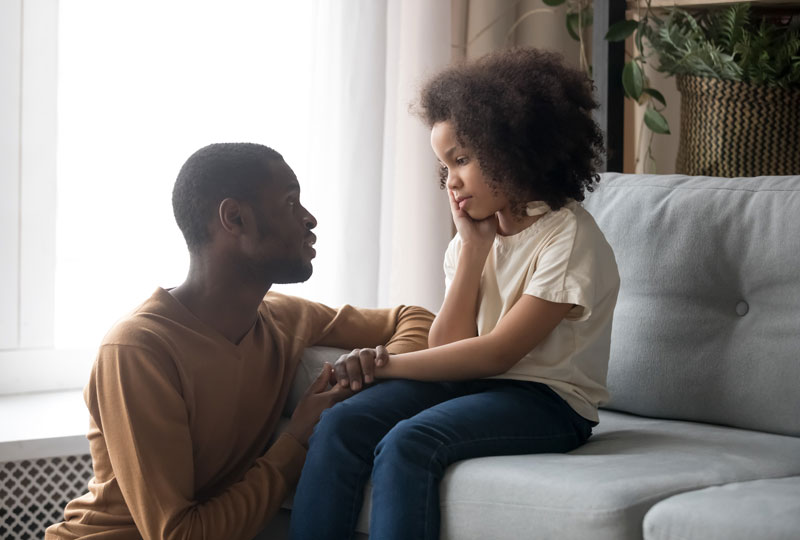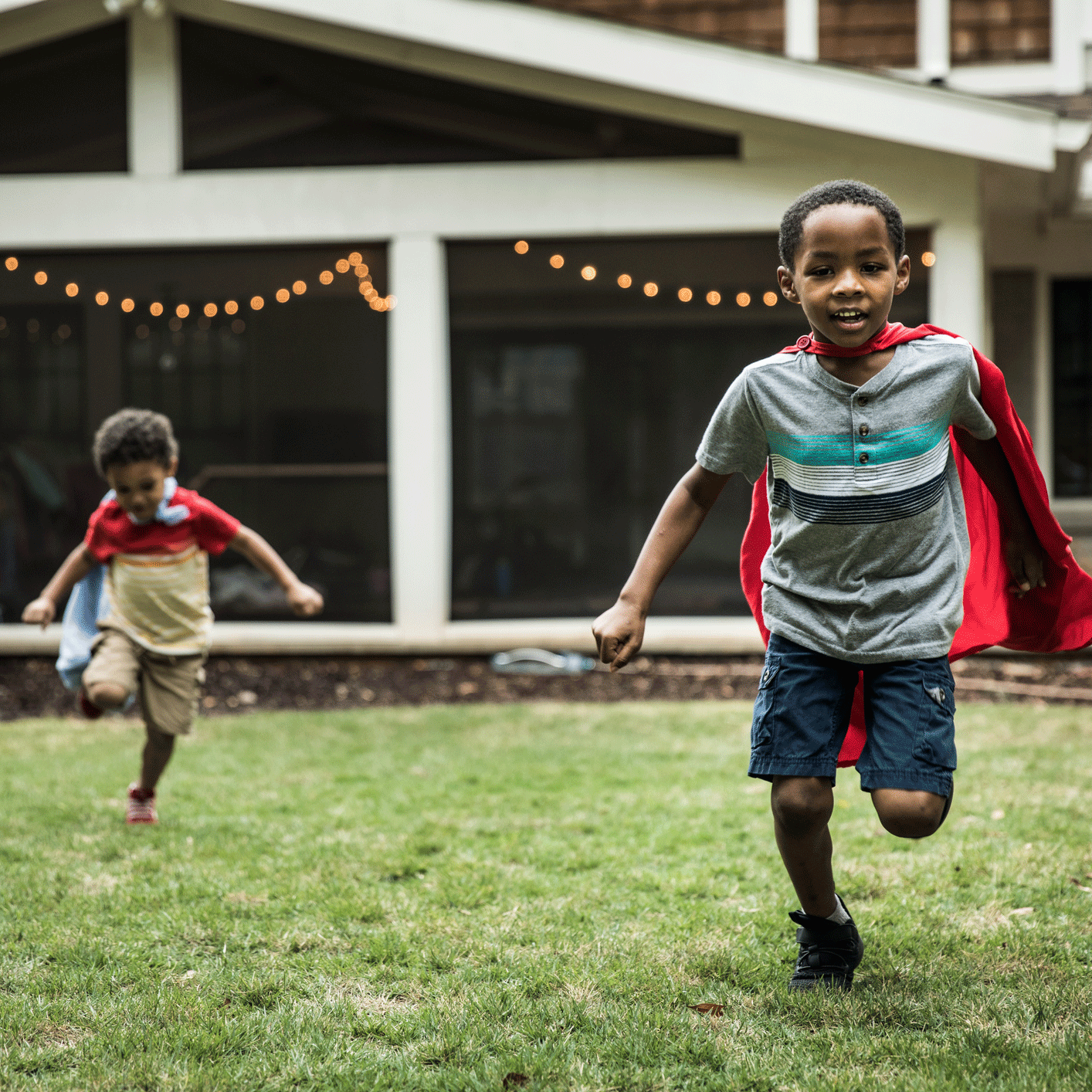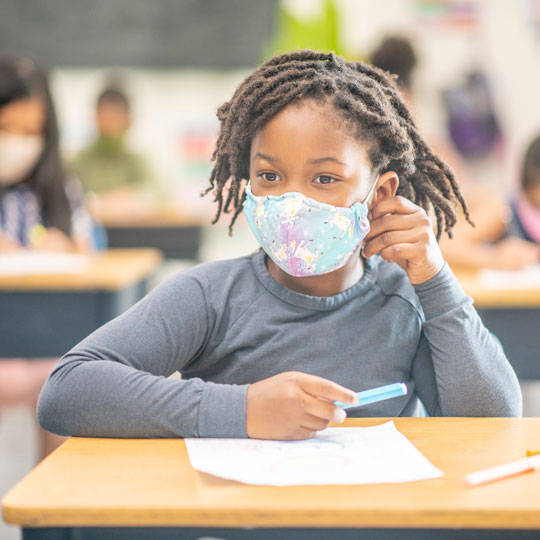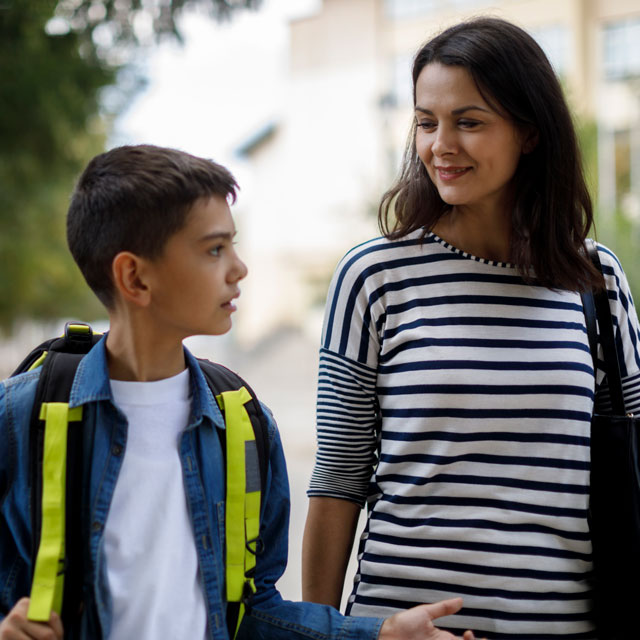When even adults are uncertain, what you can do to calm children’s worries. Learn what to tell your children about coronavirus.
In this time of great change and uncertainty for all, it is especially important to think about what adults can do to calm children’s worries and concerns. Learning what to tell your children will help them understand and cope with the coronavirus pandemic.
In the still-evolving spread of coronavirus (officially called COVID-19), life is changing all around us. As challenging as it may be to manage our own thoughts and feelings, those of us who are parents, educators or healthcare professionals must also find ways to meet the needs of our children as they wait, wonder and ask questions.
Mentions of the global spread of coronavirus are on every television, radio, and internet outlet. They come up in virtual classroom meetings, phone calls and video chats with friends and family, or even while picking up dinner to go – places and spaces where children of all ages are often listening. As frightening as things may feel right now, children are often able to cope with fear in ways far beyond what adults would expect – if they are presented with the right support.
So, as our communities change and adapt to stay safe and healthy, what do children need to understand, cope and thrive? Essentially, they need three things:
1. Open and honest information
Although it can be difficult to have open and honest conversations, children – much like adults – are better able to cope with things they understand, rather than misconceptions they may fear. Explaining the most urgent details can lower anxiety in your children. It’s important to use accurate terminology, like “coronavirus” or “COVID-19” paired with understandable concepts, such as “a type of sickness that people can get from germs.” Typically, children around and over the age of 6 can understand illness as something shared through germs that we cannot see with our eyes. For all ages, it is also important to balance information about the illness with information about the ways in which your family and community are responding to help one another. Remind your child that healthcare providers, schools, leaders and other groups are working to prevent people from becoming sick, and to take care of those who become ill.
Giving children opportunities to talk and ask questions, on an ongoing basis, can help them feel supported, loved and able to trust their caregivers when they learn something new or have a new experience. Wearing a mask for the first time, having to wait in line to go into a store, or learning how to interact with people in a socially distanced way can all be unsettling and confusing for children.
Also, it is helpful to thoughtfully limit children’s exposure to news coverage, especially when you’re not watching the news with them. Instead, make time to talk about the news together as children’s questions arise. In addition, turning off the television and limiting computer time, including social media for older children and teens, can also help children develop more realistic and balanced ways of thinking that help them feel empowered and able to cope with change.
Should your child’s healthcare provider recommend a COVID-19 test, it is possible that your child may feel anxious or worried about this procedure. Because the test is a new and unfamiliar medical experience, your child will need open and honest information to help them know what to expect and tools they can use to manage their feelings. It is helpful for them to know the steps of the procedure, and how each part may look, feel, sound, smell or taste. Pairing this information with ideas about ways to cope – whether holding onto a favorite toy from home, watching a favorite show or movie, or choosing to sit in your lap while the test is performed – can help your child feel more comfortable and confident in the face of this new experience. For more information on how to help your child prepare for a COVID test, see this video:

2. Play and interaction
Play is the most important resource for understanding in childhood. Playing helps children and teens feel safe and secure and gives them a comfortable outlet for sharing thoughts and feelings that are difficult to describe with words. Play helps children communicate their needs, work through their fears and create ways to deal with their new surroundings. Although play may not be high on our own to-do lists (though adults need time to play and reflect, too), continuing to provide children and teens with time and resources for play can foster the resiliency they will need to manage stress. You may find that a card game, drawing, or listening to a favorite song, especially when done together, can be calming and help you and the children in your life gain comfort and community during this challenging time.
3. Action and choices
Children need to know that actions are being taken to ensure and maintain their own safety. They also need to feel as though they play a meaningful part in helping. Creating a plan can help children feel a sense of control over the future by as they identify what will change, what will not change, and the tools available to help them manage either scenario. For instance, some children may benefit from helping to create or pick out masks for themselves or other family members to wear when needed. Others may like to design and stock a family “wellness bag” with useful items in case coronavirus or other illness strikes close to home. Empower children to make choices about what items to include, from tissues, hand sanitizer and chicken noodle soup to favorite stuffed animals, toys, or other comfort items they feel would be helpful.
Children can also be involved in daily decisions such as which path to walk, if they will wave or bump elbows when they see a friend, or how they will plan their days with more time at home. Children benefit from finding ways to turn their feelings into concrete actions. It continues to be helpful to remind children and teens of the importance of hand hygiene, social distancing, eating well, drinking water and getting enough sleep to help their bodies, as well as their minds, continue to stay healthy.
The coronavirus epidemic is something that most adults have not yet experienced in their lifetimes, so it is hard to know how to help ourselves and our children successfully manage this time of change. However, it will be a formative memory for many of today’s children and teens, and one that they may reflect on throughout their adult lives.
By providing open and honest information, encouraging play and interaction, and involving them in action plans and choices, parents and other supportive adults can help children make sense of and adjust to the changes they are experiencing right now.
This post was written by Jessika Boles, PhD, CCLS, a certified Child Life Specialist for the Pediatric Critical Care Unit at Monroe Carell Jr. Children’s Hospital at Vanderbilt.




